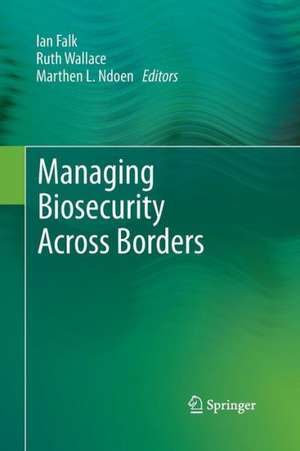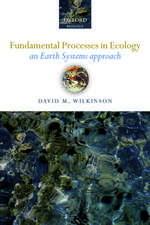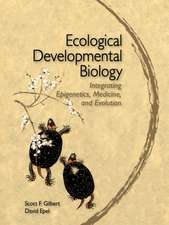Managing Biosecurity Across Borders
Editat de Ian Falk, Ruth Wallace, Marthen L. Ndoenen Limba Engleză Paperback – 18 oct 2014
| Toate formatele și edițiile | Preț | Express |
|---|---|---|
| Paperback (1) | 945.92 lei 6-8 săpt. | |
| SPRINGER NETHERLANDS – 18 oct 2014 | 945.92 lei 6-8 săpt. | |
| Hardback (1) | 950.03 lei 6-8 săpt. | |
| SPRINGER NETHERLANDS – 3 iul 2011 | 950.03 lei 6-8 săpt. |
Preț: 945.92 lei
Preț vechi: 1153.57 lei
-18% Nou
Puncte Express: 1419
Preț estimativ în valută:
181.02€ • 196.56$ • 152.06£
181.02€ • 196.56$ • 152.06£
Carte tipărită la comandă
Livrare economică 23 aprilie-07 mai
Preluare comenzi: 021 569.72.76
Specificații
ISBN-13: 9789400792616
ISBN-10: 9400792611
Pagini: 328
Ilustrații: XXIV, 302 p.
Dimensiuni: 155 x 235 x 17 mm
Greutate: 0.46 kg
Ediția:2011
Editura: SPRINGER NETHERLANDS
Colecția Springer
Locul publicării:Dordrecht, Netherlands
ISBN-10: 9400792611
Pagini: 328
Ilustrații: XXIV, 302 p.
Dimensiuni: 155 x 235 x 17 mm
Greutate: 0.46 kg
Ediția:2011
Editura: SPRINGER NETHERLANDS
Colecția Springer
Locul publicării:Dordrecht, Netherlands
Public țintă
ResearchCuprins
Frontispiece: Map of region.- Information: Profile of Eastern Indonesia.- Acknowledgements.- Foreword.- 1. Managing Plant Biosecurity across Borders.- 2. Policy and Legal Framework for Managing Biosecurity.- 3. Adoption of Local Knowledge in Regional Biosecurity Development: Papua Case Study.- 4. Crossing the Community – Government Border: The Case of Citrus Biosecurity Management in West Timor, Indonesia.- 5. Using a Community Approach to Foster Effective Biosecurity Practices Across Social Borders.- 6. Social Partnerships in Learning: Engaging Local, Regional and National Partners in Plant Biosecurity Management.- 7. Bridging Cross-Cultural Knowledge through a Bilingual Biosecurity Glossary.- 8. Knowledge Transfer through Bilingual Publications on Food Security and Biosecurity.- 9. Gender Issues in the Community Management of Biosecurity Eastern Indonesia.- 10. Accessing Local Knowledge to Achieve Economic and Social Sustainability. 11. Engaging Biosecurity Workforces through Mobile Learning and Technologies in Community Management of Biosecurity Research.- 12. A Strategy for Managing Biosecurity across Borders.- Glossary.
Textul de pe ultima copertă
This book works towards a strategy for managing plant biosecurity in complex contexts. Managing the risks that pests and diseases pose to plants of all kinds is a highly complex issue, made more so in an era where climate change is facing us on a daily basis. Borders between nations, regions and culturally distinct and diverse peoples provide the background for the multi-disciplinary but integrated research presented in this book. The policy, power-plays and vested interests of people from all sectors and tiers of society coming to grips with basic issues of securing their food supplies and cultural heritage provide the foreground in a drama that affects the lives of millions. To achieve change in such a context requires a strong evidence-base from science and social science, and this book makes the first, and a comprehensive contribution to this end.
“Just to the north of Australia lie the islands of Wallacea, one of the world’s great biogeographical frontier zones. In this fascinating book, a multi-disciplinary team of Australian and Indonesian researchers reflect on the challenge of managing invasive species, pathogens and other threats across borders both geographic and disciplinary. Frontier zones often bring forth exciting innovations, and the authors have risen to the challenge with broad and incisive analyses ranging from plant pathology to gender, community empowerment and cross-cultural understanding. The whole is much greater than the sum of the parts, thanks to the commitment of the authors of case studies to engage in ongoing meta-analyses of the big questions that emerge at the borders of their disciplines.”
J. Stephen Lansing
Professor of Anthropology, Ecology and Evolutionary Biology, University ofArizona
Senior Research Fellow, Stockholm Resilience Centre
Professor, Santa Fe Institute, USA
“Just to the north of Australia lie the islands of Wallacea, one of the world’s great biogeographical frontier zones. In this fascinating book, a multi-disciplinary team of Australian and Indonesian researchers reflect on the challenge of managing invasive species, pathogens and other threats across borders both geographic and disciplinary. Frontier zones often bring forth exciting innovations, and the authors have risen to the challenge with broad and incisive analyses ranging from plant pathology to gender, community empowerment and cross-cultural understanding. The whole is much greater than the sum of the parts, thanks to the commitment of the authors of case studies to engage in ongoing meta-analyses of the big questions that emerge at the borders of their disciplines.”
J. Stephen Lansing
Professor of Anthropology, Ecology and Evolutionary Biology, University of Arizona
Senior Research Fellow, Stockholm Resilience Centre
Professor, Santa Fe Institute, USA
“Just to the north of Australia lie the islands of Wallacea, one of the world’s great biogeographical frontier zones. In this fascinating book, a multi-disciplinary team of Australian and Indonesian researchers reflect on the challenge of managing invasive species, pathogens and other threats across borders both geographic and disciplinary. Frontier zones often bring forth exciting innovations, and the authors have risen to the challenge with broad and incisive analyses ranging from plant pathology to gender, community empowerment and cross-culturalunderstanding. The whole is much greater than the sum of the parts, thanks to the commitment of the authors of case studies to engage in ongoing meta-analyses of the big questions that emerge at the borders of their disciplines.”
J. Stephen Lansing
Professor of Anthropology, Ecology and Evolutionary Biology, University of Arizona
Senior Research Fellow, Stockholm Resilience Centre
Professor, Santa Fe Institute, USA
“Just to the north of Australia lie the islands of Wallacea, one of the world’s great biogeographical frontier zones. In this fascinating book, a multi-disciplinary team of Australian and Indonesian researchers reflect on the challenge of managing invasive species, pathogens and other threats across borders both geographic and disciplinary. Frontier zones often bring forth exciting innovations, and the authors have risen to the challenge with broad and incisive analyses ranging from plant pathology to gender, community empowerment and cross-cultural understanding. The whole is much greater than the sum of the parts, thanks to the commitment of the authors of case studies to engage in ongoing meta-analyses of the big questions that emerge at the borders of their disciplines.”
J. Stephen Lansing
Professor of Anthropology, Ecology and Evolutionary Biology, University ofArizona
Senior Research Fellow, Stockholm Resilience Centre
Professor, Santa Fe Institute, USA
“Just to the north of Australia lie the islands of Wallacea, one of the world’s great biogeographical frontier zones. In this fascinating book, a multi-disciplinary team of Australian and Indonesian researchers reflect on the challenge of managing invasive species, pathogens and other threats across borders both geographic and disciplinary. Frontier zones often bring forth exciting innovations, and the authors have risen to the challenge with broad and incisive analyses ranging from plant pathology to gender, community empowerment and cross-cultural understanding. The whole is much greater than the sum of the parts, thanks to the commitment of the authors of case studies to engage in ongoing meta-analyses of the big questions that emerge at the borders of their disciplines.”
J. Stephen Lansing
Professor of Anthropology, Ecology and Evolutionary Biology, University of Arizona
Senior Research Fellow, Stockholm Resilience Centre
Professor, Santa Fe Institute, USA
“Just to the north of Australia lie the islands of Wallacea, one of the world’s great biogeographical frontier zones. In this fascinating book, a multi-disciplinary team of Australian and Indonesian researchers reflect on the challenge of managing invasive species, pathogens and other threats across borders both geographic and disciplinary. Frontier zones often bring forth exciting innovations, and the authors have risen to the challenge with broad and incisive analyses ranging from plant pathology to gender, community empowerment and cross-culturalunderstanding. The whole is much greater than the sum of the parts, thanks to the commitment of the authors of case studies to engage in ongoing meta-analyses of the big questions that emerge at the borders of their disciplines.”
J. Stephen Lansing
Professor of Anthropology, Ecology and Evolutionary Biology, University of Arizona
Senior Research Fellow, Stockholm Resilience Centre
Professor, Santa Fe Institute, USA
Caracteristici
For the first time, the book provides multi-disciplinary evidence bases for practical management of biosecurity in complex cases. Not an isolated set of ‘reported research’, but strategically designed to fit together so as to provide a the end-point of a practical planning tool, which is a strategy for management of biosecurity. Each case reports a particular angle and dimension of developing sound planning processes, from policy to grassroots, in ways that shed light on the details and issues involved in each case.















